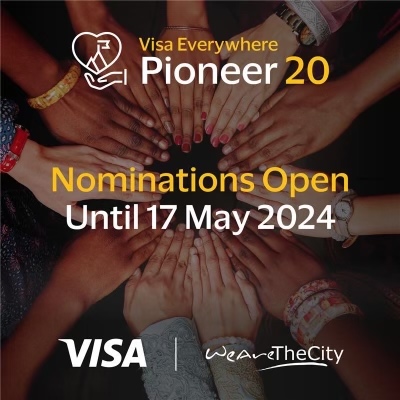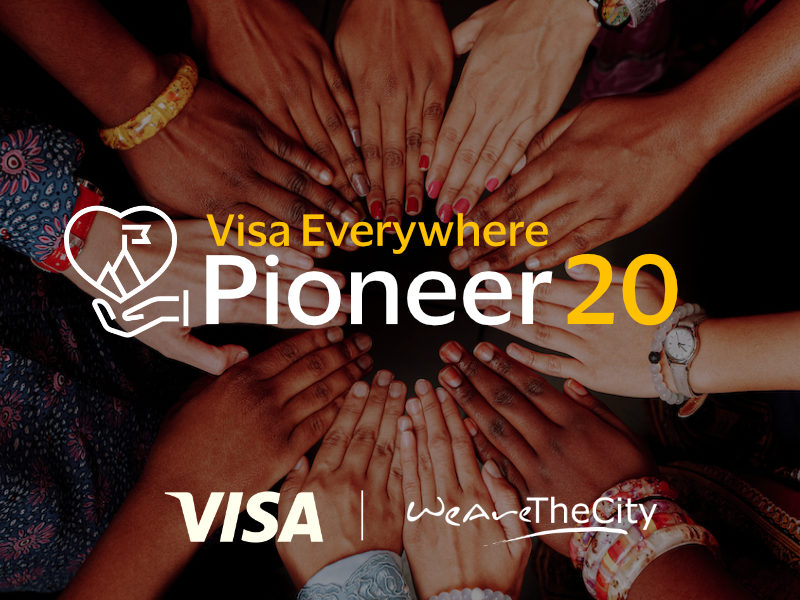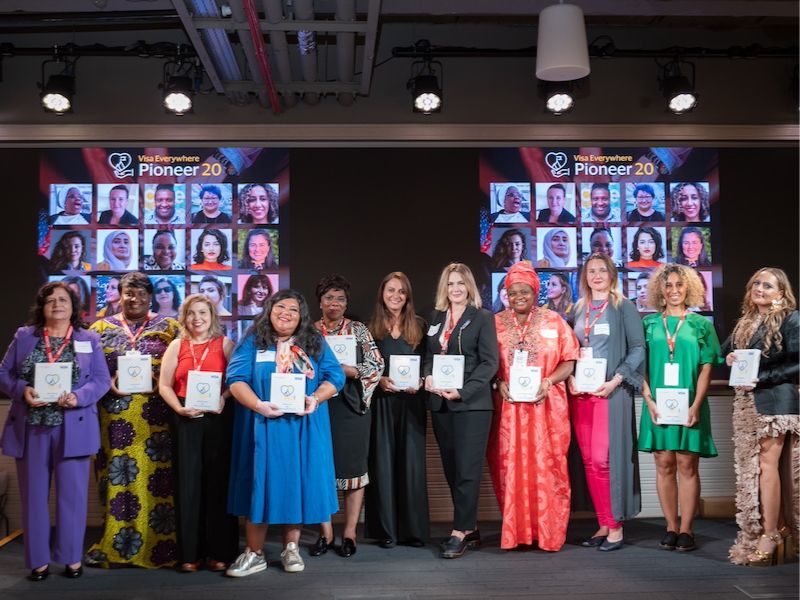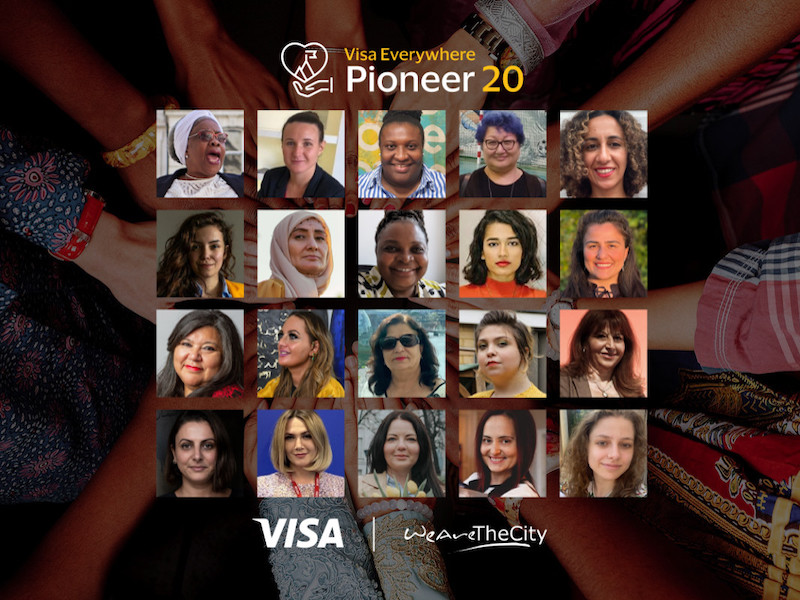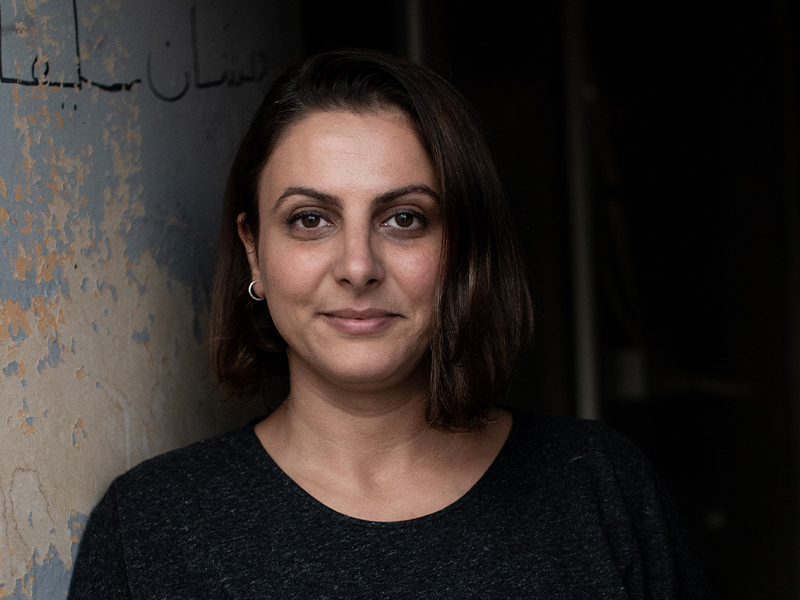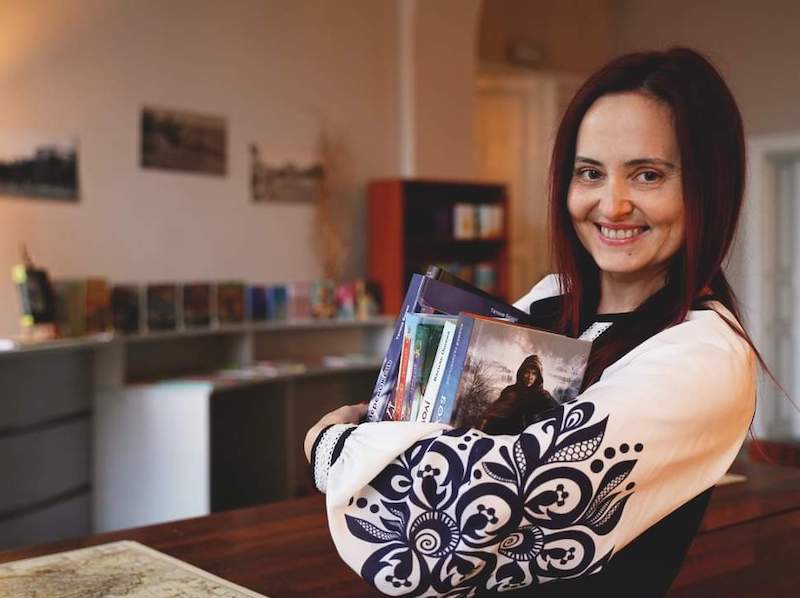
My name is Tetiana Vyhovska. I am a publisher, journalist, frontline volunteer, community activist, and event organizer from Bila Tserkva city. However, I am writing to you from the Polish city of Katowice, where I have been residing with my son since March 1, 2022.
Even though I am far from home, from the very first days of being abroad, I have been striving to promote Ukrainian culture, unite Ukrainians abroad, establish support networks, conduct creative therapy events, organize integration evenings, excursions, and more. All of this revolves around a powerful project I initiated here back in November of last year – the “Ukrainian Library in Katowice”
Telegram channel: https://t.me/katowicedlanas
Most importantly, I haven’t ceased the activities of my Ukrainian publishing house and continue to manage it remotely. Sometimes, I feel that I have done very little, while at other times, I understand that I’m accomplishing the impossible given the lack of funding. All my initiatives are carried out through self-financing or co-financing by participants in my projects. I collaborate with other foundations, ones I’ve managed to form connections with.
But let’s start from the beginning. Practically from the first days of my stay in Poland, I began receiving questions on social media like “Where can I find/buy/borrow a Ukrainian book?” That’s when I got the idea to create a cosy corner of Ukrainian culture in the industrial city of Katowice. I won’t go into great detail about my adventures in searching for a location for the Ukrainian Library, but considering the library was only established in November, you can imagine that the six months of searching were not easy. Then I organized the delivery of books from Ukraine. Initially, they were copies from my private collection and books from the “Time of Changes Information” publishing house, of which I am the founder and chief editor. Later on, both Polish and Ukrainian media became interested, and my initiative received support.
Dniprovsk libraries were among the first to respond and provided us with 300 books. Then libraries from Bila Tserkva, Ukrainian publishers, individual authors joined in, and we also received support from the “Books from Home” project. As a result, the library now holds around 1000 Ukrainian editions.
The library aids Ukrainian artists in promoting their work in Poland. Oleg Havrysh, Inna Kurylo, Maksym Bespalov, and many other Ukrainian writers have been able to meet with their readers as part of my library’s activities. Unfortunately, it’s quite challenging to find a space that would host a Ukrainian author with their book presentation for free. During the search for a location, I reached out to Polish libraries to organize events with Ukrainian authors, but faced refusal, partly because Polish libraries usually organize events with authors who write in Polish or have translations into Polish.
My library has become a refuge not only for Ukrainians missing their native language but also for Poles who have embraced Ukrainian culture and are learning the Ukrainian language. Magdalena Neviadomska, a frequent guest at events organized by the “Nych” bookstore-café in Krakow, is now happy that there’s such a literary centre in her hometown of Katowice. She has read many Ukrainian books and desires communication with Ukrainian artists. Radek Lijniak began learning Ukrainian with the start of the full-scale war and dreams of working and living in Ukraine after victory. He is fascinated by Ukrainian culture and visits my library every second Thursday to participate in literary events and exchange books.
People come to my library as if it’s a psychological counselling center, each with their problems and concerns. I try to listen to everyone and provide good advice.
My library seems like a bridge between our cultures and is highly valued in Katowice. With a friend, we managed to win a small grant last year for 3000 PLN. Within the library, we organized various necessary events for refugees – from lectures on art and history to consultations on daily life in Poland. People tend to fear the unknown, so we conducted workshops on how to fill out the temporary residence declaration.
People come to my library as if it’s a psychological counselling center, each with their problems and concerns. I try to listen to everyone and provide good advice. Last week, a woman came to me who was abused by her husband. She has two children, one of whom has autism spectrum disorder. She is afraid to contact the police because “they might release her husband the next day, and he’ll come back to beat her.
Even from a distance, I manage to promote the publishing house’s activities. As a publisher, over the past year, I’ve participated in book fairs in Warsaw, Wrocław, Katowice, and Leipzig.
Since the start of the full-scale war, I haven’t had a single vacation. For four months, I worked on a special project with “Gazeta Wyborcza” and wrote articles on refugee topics:
I wrote about the problems Ukrainian women face when searching for jobs, about refugee volunteers who continue helping others in difficult situations, about those who fled from occupation under bombings, about creative individuals who had to go to work in factories to survive.
Recently, I started organizing city tours in Katowice. I felt there was demand for such activities, so I found a guide, and we have already conducted several walks in the city, with more planned.
In the library, I’ve organized various events – from fairy tale and art therapy to lectures on Ukrainian art and consultations on legalizing and starting a business. There’s been a lot of interesting things happening, and it continues. I mentioned this hastily; in reality, there’s little time for everything.”
About Tetiana in Gazeta Wyborcza

